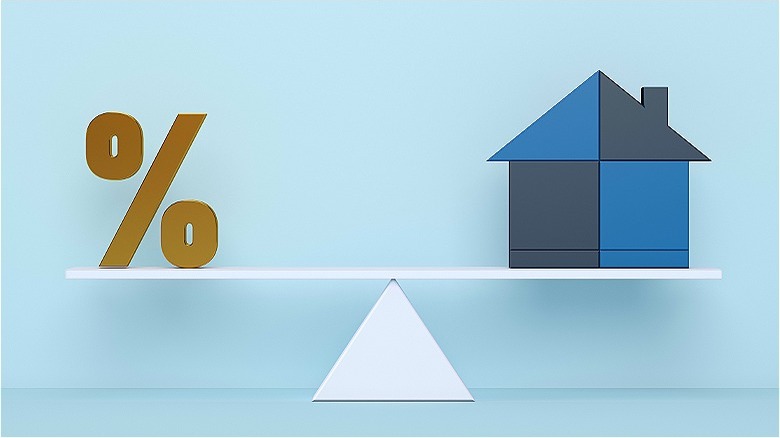Think Twice Before Making That Extra Mortgage Payment. Here's Why
When your friends or family learn you're under contract to purchase a home — whether it's a new home or just new to you — one of the first nuggets of advice you're likely to receive involves making extra mortgage payments. For example, if you can manage one extra payment per year (making 13 payments instead of 12), that life hack will remove (blank) number of years from your loan. The exact number of years shaved off your mortgage using the once-per-year extra payment method is subject to prevailing interest rates, but four to six years is a good rule of thumb.
Better still, by paying the home loan off early, you'll save a substantial amount of money on interest charges. However, personal finance, investing strategies, and the frequency with which Americans move have all changed considerably since the good old days, especially in a post-COVID 19 world. So is this classic tip about making extra mortgage payments still good advice? Or might the money be better focused elsewhere? Let's dive in.
Other debt may have higher interest rates
Because mortgage interest is calculated based on the loan's balance, making extra payments will reduce the balance more quickly, resulting in less interest paid. By the way, "extra payment(s)" need not be taken literally. If your monthly mortgage payment is $2,000 but you want to contribute an oddball amount, like an extra $500, that's perfectly allowable.
On the surface, paying less in interest expenses seems like an admirable goal, but consider the lost opportunity cost of focusing that extra-payment money elsewhere. Interest rates were low for a long time, especially during the COVID pandemic. Even today's ~7% mortgage rates — which might seem high compared to 2021's 3% rates — are relatively tame from a historical standpoint. Compare that to the interest rate charged by credit card issuers for carrying a balance, which frequently approaches 25% or more. It only stands to reason that rather than saving a 3% to 7% mortgage interest charge, you'd massively benefit by using any spare cash to erase high-interest-rate credit card debt instead.
In the event that you don't have any credit card debt, you may want to consider investing extra cash rather than making extra mortgage payments. Over the last 10 years, the S&P 500 has delivered an average annual return of 12.68%. Once again, that's far in excess of what you'll save by contributing additional funds to a mortgage. Similarly, if your employer offers a matching contribution into a retirement account, make sure you're maxing out that opportunity. It is literally free money.
It's likely you'll move before the mortgage is paid off
Besides paying down more expensive debt and/or investing, also consider forgoing making extra mortgage payments in favor of building an emergency fund if you don't already have one. Experts recommend squirreling away three to six months' worth of living expenses for emergencies, like losing your job, a medical emergency, or to cover unexpected repairs to your vehicle or home.
Also, interest paid on your mortgage might be deductible from your federal income taxes if you choose to itemize your tax deductions. That's yet another incentive to prioritize paying other debts or investing spare cash before accelerating your mortgage payments.
Finally, when deciding whether making extra mortgage payments is the right strategy for you, consider how long you might expect to live in your home. On average, Americans move 11.7 times during their lives (and for the record, when moving, tipping professional movers is appreciated). What's more, the U.S. Bureau of Labor Statistics tells us that workers stay with an employer 4.1 years on average (as of 2022). Considering those statistics, is the goal of shortening a 30-year mortgage down to 25 years an admirable one? Or are you likely to sell long before then?
In summary, if you have little other debt besides your mortgage, you're already investing and contributing significantly to retirement accounts, and you intend to stay in your home for an extended period of time, it certainly doesn't hurt to pay down your home loan more aggressively. That's especially true if you purchased in mid-2022 or later, when mortgage interest rates began to rise. Otherwise, consider focusing extra cash elsewhere.


